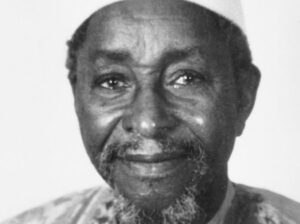
Amadou Hampathe Ba
In the chapter 6 “Narrative” by Jonathan Culler, the author discusses about the correlation between event, plot and discourse. We realize that in the twentieth, the narrative has become the significant instrument in the literary education. For my example, I would like to talk about the novel “The strange destiny of Wangrin” by Amadou Hampathe Ba. The event took place in west Africa during the colonization. Wangrin was a translator of French to the local language (dialect), he was employed by the French colony. He became very famous in his region and make wealth because of the corruption in the way he was interpreting the language to the local population. He was a person who believed in magic and finally end his life in a tragic situation. For many west African intellectuals, the way the author related the event to a narrative history show how writers can inspire readers in the articulation and presentation of the language. To make sense of the history, the author Amadou Hampathe Ba uses rhythm, chronology and arguments to give sense and pleasure to the readers about the event. The plot was very educative and is considered as set of knowledge. Furthermore, the narration of the story was discoursed because it shows how the writing explains the social situation of the population during the colonization.
In the section “What stories do” the author Culler presents the importance of the stories, its effects on our society. The benefit of the function of the story is multiple, it gives us a pleasure of reading and interact with people in a fictional situation. Also, the stories teach us about the world by helping readers to be able to analyze real or unreal events because some novel relate real facts or fictions. For that reason, it is one of the best ways to improve our knowledge.


